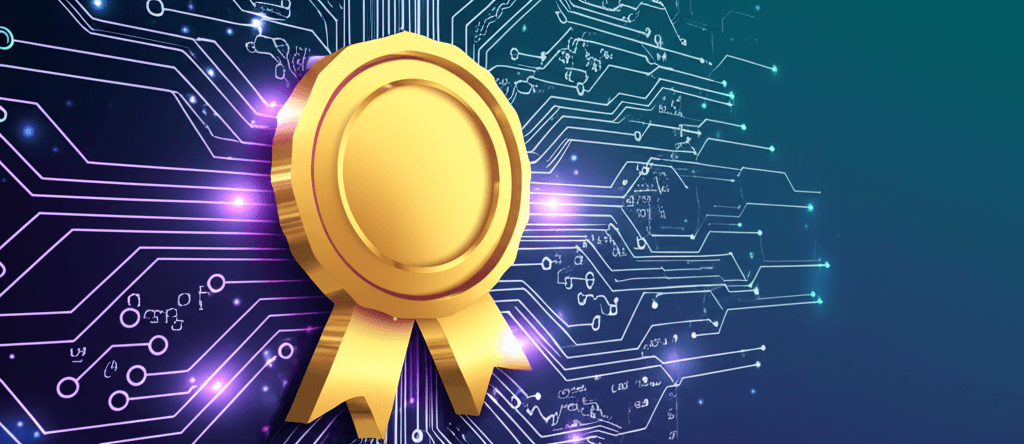OpenAI's general AI wins gold at top programming Olympiad.
OpenAI's general AI leaps from bronze to gold, showcasing human-like reasoning to solve elite coding challenges.
August 12, 2025

An artificial intelligence system developed by OpenAI has achieved a landmark result in one of the world's most challenging competitive programming contests, securing a score equivalent to a gold medal at the 2025 International Olympiad in Informatics (IOI). The AI performed at an elite level, ranking 6th overall when measured against the 330 top high school programmers from 84 countries who competed in the event.[1][2][3] This achievement places the AI firmly in the 98th percentile of competitors and marks the first time an AI system has reached this echelon in this specific competition, signaling a significant leap in the reasoning and problem-solving capabilities of artificial intelligence.[2][3] The result is not an isolated success; it is part of a string of recent high-level performances for the system, which also attained a gold medal-level score at the International Mathematical Olympiad and a 2nd place finish at the AtCoder competitive programming platform.[1][3]
The International Olympiad in Informatics, held this year in Sucre, Bolivia, is widely regarded as the pinnacle of algorithmic competition for pre-college students.[3][4] The contest is a grueling two-day affair where participants are given five hours each day to solve three complex algorithmic problems using the C++ programming language.[2] Success requires not just coding proficiency, but a deep understanding of algorithms, data structures, and mathematical logic to devise solutions that are both correct and highly efficient. At the 2025 event, only 28 out of 330 human contestants earned the coveted gold medals, underscoring the extreme difficulty of the challenge.[2][5] OpenAI's system competed in the online AI track under the same stringent rules as the human participants, with no access to the internet and a limit of 50 submissions, making its high ranking a direct comparison of its problem-solving abilities under pressure.[2][3] The AI’s performance represents a monumental jump from just a year prior; at the 2024 IOI, a specialized OpenAI model placed in the 49th percentile, near the cutoff for a bronze medal.[2][3]
A key aspect of this breakthrough lies in the nature of the AI itself. Unlike previous efforts that relied on models specifically fine-tuned for the IOI competition, this year's success was achieved using an ensemble of general-purpose reasoning models.[2][3] This represents a strategic shift away from domain-specific, hand-engineered systems, like the "o1-ioi" model from 2024, toward more adaptable and broadly capable AI.[6][7] This new generation of AI, sometimes referred to as "o3" in research papers, leverages techniques like reinforcement learning to enhance its problem-solving process.[6][8][7] The system utilizes a chain-of-thought approach, where it methodically breaks down complex problems into smaller, manageable steps, explores potential solution paths, and identifies and corrects its own errors, mirroring the cognitive processes of human experts.[6][9] This ability to reason through novel and complex scenarios, rather than relying on memorized patterns, is what allowed the general-purpose model to not only match but significantly surpass the performance of its specialized predecessor.[10][11][7]
The achievement places OpenAI at the forefront of a highly competitive race among tech companies to build AI with advanced reasoning skills. Competitive programming has become a critical benchmark for the field, providing an objective measure of an AI's logical and problem-solving prowess that goes beyond language fluency or pattern recognition.[11][12] Google's DeepMind has also made significant strides with its AlphaCode 2 system, which, powered by the Gemini Pro model, was able to outperform 85% of human participants in competitions on the popular Codeforces platform.[13][14][15] Like OpenAI's system, AlphaCode 2 uses a sophisticated process of generating a massive number of potential code solutions, which are then filtered, clustered, and ranked to find the most promising candidate.[13] The rapid progress demonstrated by these leading AI labs underscores the growing capability of machines to tackle tasks that require critical thinking, logic, and creativity. The implications extend far beyond the realm of competitive coding, suggesting that these advanced reasoning systems could soon be applied to accelerate progress in scientific research, software development, and complex engineering challenges.[6][1]
In conclusion, OpenAI's gold medal-level performance at the IOI 2025 is more than just a new high score; it is a clear demonstration of the power of general-purpose AI reasoning. By excelling in a domain that has long been a bastion of human intellect, under the same demanding conditions as the world's brightest young programmers, the AI has set a new standard for what is possible. The dramatic improvement over the course of a single year highlights the accelerating pace of innovation in the field. This milestone suggests a future where AI systems act as powerful collaborators in solving some of the most complex computational and scientific problems, moving from being tools that execute instructions to partners that can reason and create.
Sources
[1]
[4]
[7]
[8]
[9]
[10]
[11]
[12]
[13]
[14]
[15]